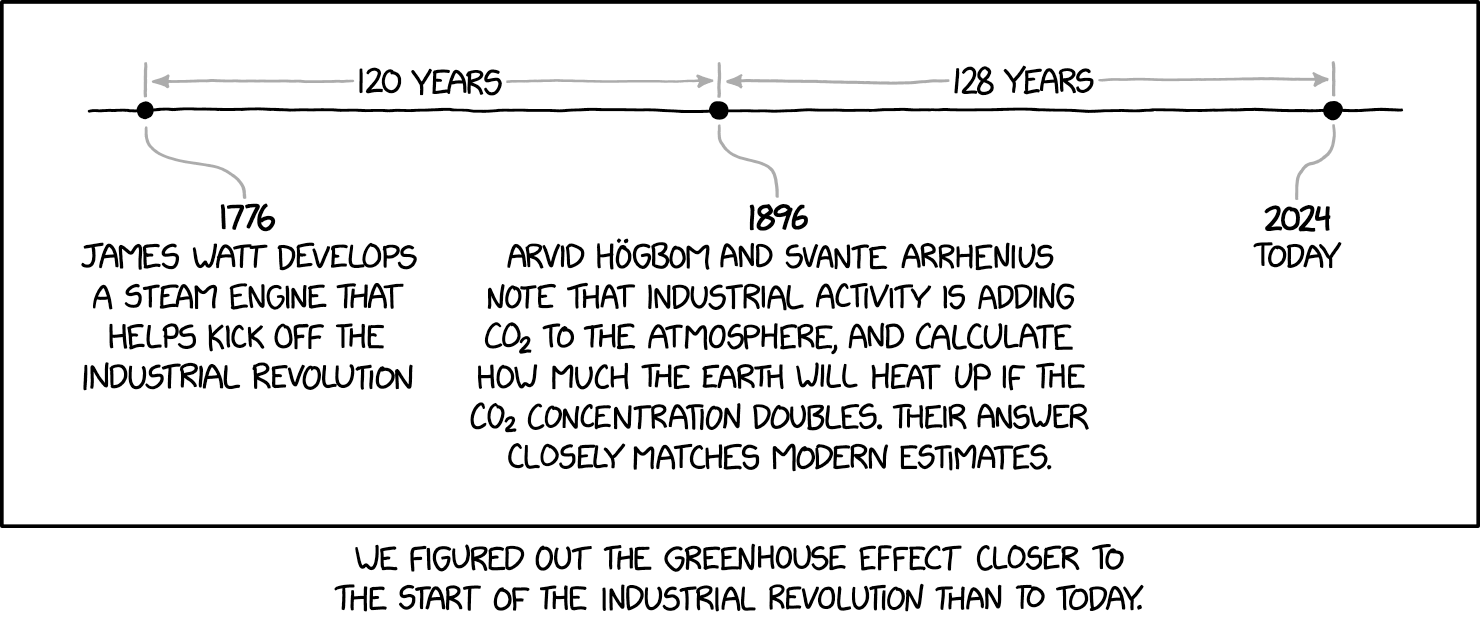this post was submitted on 03 Feb 2024
348 points (98.9% liked)
xkcd
8636 readers
4 users here now
A community for a webcomic of romance, sarcasm, math, and language.
founded 1 year ago
MODERATORS
you are viewing a single comment's thread
view the rest of the comments
view the rest of the comments

Like the compounding gains from the individual revolution.
In general, a common mistake among would be futurists is not correctly identifying when there are changes in the acceleration of advancements.
It's not only about measuring the rate of change of the present moment, but also how that rate has shifted over time until now and forecasting that forward. And even then seeing if there's been a change in the rate of acceleration.
The majority only look at the rate of change in the present moment.
Compounding effects often fly under the radar in predictions.
And also the inverse. Some optimistic scifi thinks we would already reach Alpha Centauri by now. Predicting the future in general is hard af.